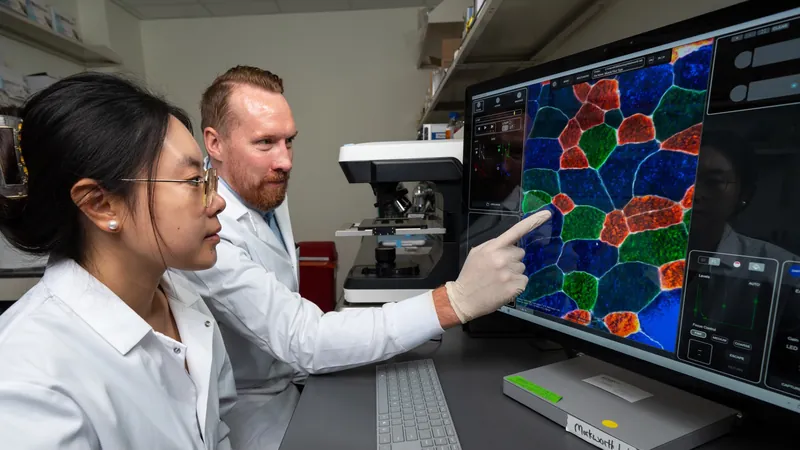
Surprising Health Benefits of Fatty Acids in Meat and Poultry: What You Need to Know
2024-10-09
Author: Ming
Introduction
In the ongoing exploration of dietary fats and their effects on human health, recent studies have highlighted a potentially positive role of fatty acids found in meat and poultry. While fish oil and its omega-3 fatty acids are widely recognized for their health benefits, the implications of omega-6 fatty acids—particularly arachidonic acid—found predominantly in animal products remain less understood.
Research Overview
A team from Purdue University, led by James Markworth, an assistant professor of animal sciences, is set to delve deeper into the health effects of omega-6 fatty acids through laboratory experiments. Their work aims not only to examine the benefits of omega-6 but also to determine the specific omega-3 fatty acids from fish that contribute to metabolic health.
The Importance of Fatty Acids
Markworth explains that both omega-3 and omega-6 are essential fatty acids, crucial for human health and only obtainable through diet. "These long-chain polyunsaturated fatty acids play a vital role in our bodies," he noted, emphasizing their importance.
Role of Arachidonic Acid
Arachidonic acid, a type of long-chain omega-6 fatty acid, is primarily sourced from meat, poultry, and eggs—unavailable from plant or fish sources. Markworth believes these nutrients in meat and poultry may offer health benefits akin to those provided by fish oil, a notion that is not commonly discussed in nutritional circles.
Metabolic Health and Omega-3
While substantial evidence supports the metabolic advantages of omega-3 fatty acids from fish oil, the precise mechanisms and the most impactful fatty acids, such as eicosapentaenoic acid (EPA) and docosahexaenoic acid (DHA), are still being investigated. "Taking fish oil can involve a complex mix of nutrients, and we are still searching for clarity on which components positively influence health issues like obesity and insulin resistance," Markworth said.
Gut Microbiome Interactions
This critical research, supported by experts in gut microbiome and animal nutrition, aims to elucidate the interaction between dietary lipids and the microbiome. "The body's systemic response to these lipids may depend on the microbial population present in the gastrointestinal tract," Markworth explained, suggesting that skeletal muscle plays a significant role as it is central to glucose disposal and insulin sensitivity—key factors in metabolic health.
Antibiotics and Fish Oil
Past studies indicate a fascinating link between antibiotic consumption and the efficacy of fish oil. For instance, in experiments with mice, antibiotics appeared to alter the metabolic benefits typically granted by fish oil. This highlights the need to understand the role of gut bacteria in how these diets impact health outcomes.
Future Directions
As researchers continue to unpack the complex relationships between diet, the gut microbiome, and metabolic health, the potential for targeted therapeutic approaches grows. "Recognizing how diet influences our gut microbiome could be revolutionary in promoting health," noted Tzu-Wen Cross, another key collaborator in the study.
Conclusion
The journey of understanding how fatty acids in meat and poultry benefit human metabolism is just beginning. As we gain insights into the interplay between our diets and gut bacteria, we may be on the brink of new dietary recommendations that could transform our approach to nutrition and health. Stay tuned as this groundbreaking research unfolds!


 Brasil (PT)
Brasil (PT)
 Canada (EN)
Canada (EN)
 Chile (ES)
Chile (ES)
 España (ES)
España (ES)
 France (FR)
France (FR)
 Hong Kong (EN)
Hong Kong (EN)
 Italia (IT)
Italia (IT)
 日本 (JA)
日本 (JA)
 Magyarország (HU)
Magyarország (HU)
 Norge (NO)
Norge (NO)
 Polska (PL)
Polska (PL)
 Schweiz (DE)
Schweiz (DE)
 Singapore (EN)
Singapore (EN)
 Sverige (SV)
Sverige (SV)
 Suomi (FI)
Suomi (FI)
 Türkiye (TR)
Türkiye (TR)